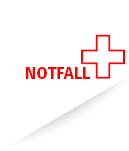Welcome to the internet presence of my most important projects.
Arbeitsgruppen
Am Institut für Medizinische Mikrobiologie werden verschiedene Forschungsprojekte bearbeitet, die sich folgenden Schwerpunkten zuordnen lassen:
1. Grundlagenforschung zur bakteriellen Pathogenese
2. Modelle für virale Infektionen und
3. Klinisch angewandte Forschung zur Diagnose von Infektionskrankheiten
Informationen zu den verschiedenen Forschungsprojekten finden Sie unter den aufgeführten Arbeitsgruppen.
AG Löffler
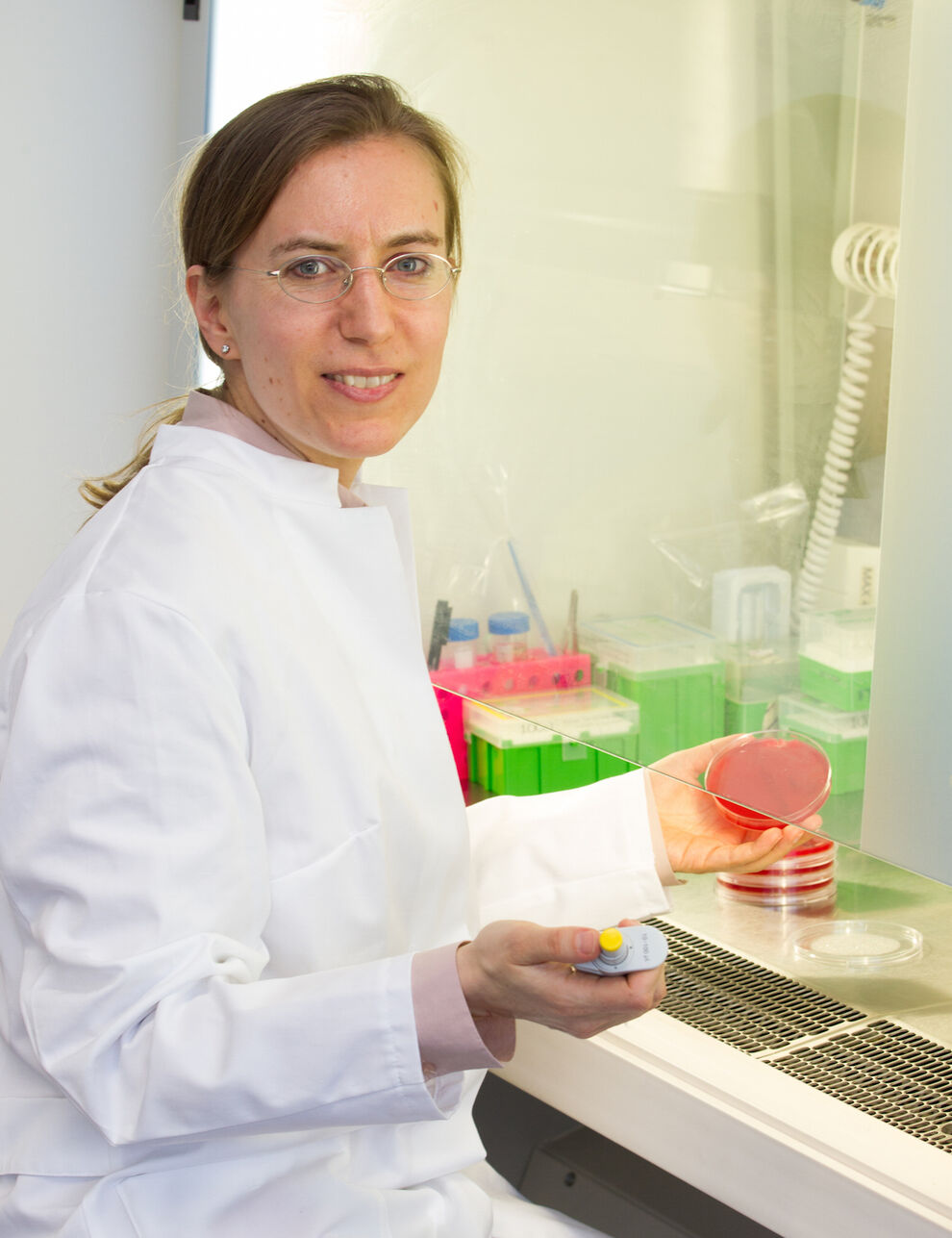
Projects
From acute to chronic and difficult-to-treat infections caused by S. aureus
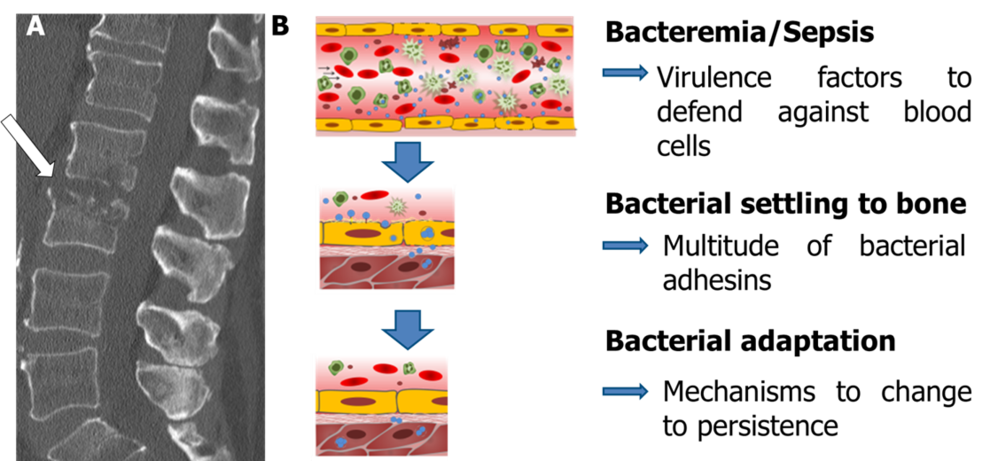
Chronic and difficult-to-treat infections are a major research focus of our institute. We have long-standing experience with S. aureus infections that can develop from an acute destructive infection into a chronic infection that can be extremely difficult to treat. The reason for this can be that the pathogens (i) invade host cells and hide intracellularly, (ii) chance their phenotypes to small-colony-variants (SCVs) that have a low metabolism and can escape from the immune system and from antibiotics, and (iii) form biofilm. Important examples for chronic S. aureus infections are osteomyelitis and endocarditis. In several project we investigate the patho-mechanisms of the infections. For this, we have developed in-vitro cell culture and in-vivo murine models that can be analysed from the acute to the chronic stage. We investigate the bacterial adaptation strategies and the host response.
Currently, we have funding from the BMBF-consortium “Mesinflame”.
Project management: Bettina Löffler, in cooperation with Ute Neugebauer (CSCC)
Funding: Project funding by the CSCC (Center for Sepsis Control and Care; BMBF)

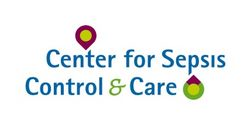
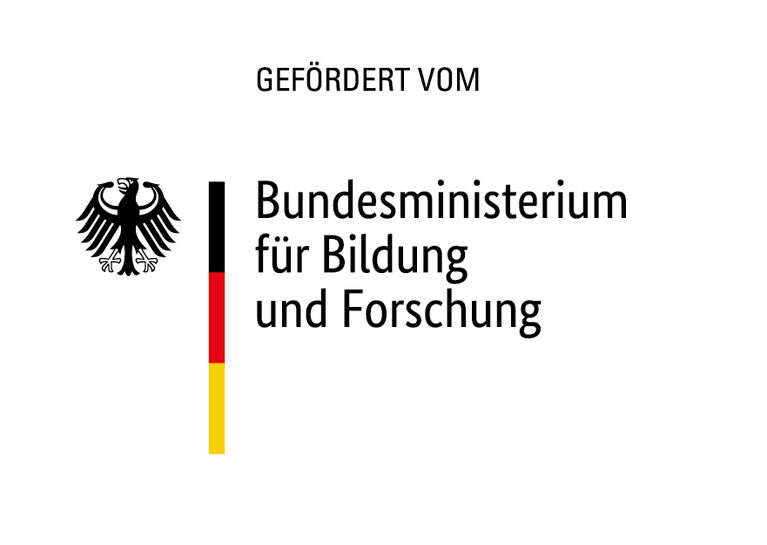
The lung microbiome and their influence on infection development
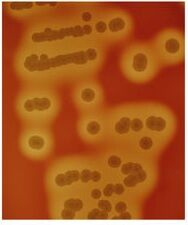
Since many years we analyse lung infections caused by S. aureus, by influenza virus or by both pathogens (co-infections). We study different virulence factors that cause lung inflammation and destruction, such as the S. aureus pore-forming toxins. In the co-infection, both pathogens interact, which can aggravate pneumonia. In a recent project we study the lung microbiome and its impact on infection development. We analyse the microbiome in surgical samples in different locations of the lung by culture methods, by sequencing and by imaging techniques. Additionally, we established complex cell culture models, including the alveolar-on-a-chip model that mimics the situation in the lung. We aim to colonize our cell culture models with bacteria belonging to the microbiome and infect the system with pathogens. Thereby the role of the microbiota and possible therapeutic interventions will be studied.
Currently, we have funding from DFG by the Excellence Cluster “Balance of the Microverse” and the SFB 1278 “PolyTarget”
Project management: Bettina Löffler, in cooperation with Hortense Slevogt (Septomics)
Funding: BMBF im Rahmen des InfectoGnostics Forschungscampus
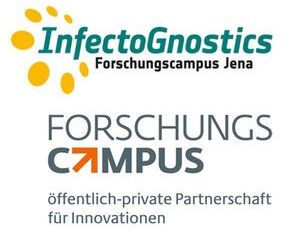

Diagnostic and translational research
To improve our diagnostic work we continuously aim to develop new methods. We have collaborations with the Leibniz Institute of Photonic Technology and use imaging methods to detect pathogens in diagnostic samples. In particular, we work on fast blood culture detection methods that can directly identify the pathogens in blood samples from patients with short (or no) cultivation steps. Furthermore, we work on rapid antimicrobial resistance testings that are based on early microbial changes that can be detected by imaging methods.
In general, we check newly developed techniques for their application in routine diagnostics, ranging from blood culture detection analytic methods to multiplex PCR systems designed for POCT-diagnostics.
Currently, we have funding by the BMBF by the InfectoGnostics Campus Jena, project “InfectoExplore” and “ADA” and by the BMBF-funding for the “Leibniz-Zentrum für Photonik in der Infektionsforschung”.
Project management: Bettina Löffler


CV
Academic education and degrees
2012 |
Board certificate for “Microbiology and Epidemiology in Infection” |
2011 |
Habilitation, “Staphylococcus aureus Infektionen an zellulären Barrieren: Inflammation, Zellzerstörung, Defektheilung und bakterielle Langzeit-Persistenz”, University Hospital of Münster (UKM) |
2000 |
Dr. med., Thesis: “Der Einfluß von Glucose und Hyperosmolarität auf peritoneale Mesothelzellen”, University of Munich (LMU) |
1999 |
State examination Medicine |
1992–1999 |
Studies of Medicine, University of Munich (LMU) [and University of Birmingham and Cincinnati] |
Stages of scientific work
since 2014 |
Professor for Medical Microbiology (W3), University of Jena (UKJ)
|
2014 |
Call for the W3 Professorship of the Institute of Medical Microbiology, University Hospital of Münster (declined) |
2002–2014 |
Resident Physician, Clinical training in Medical Microbiology; setup and management of the research group “Cellular Microbiology” in the Institute of Medical Microbiology at the University Hospital Münster |
2000–2002 |
Research fellowship from the DFG at the Gaubius Laboratory, The Netherlands Organisation for Applied Scientific Research (TNO), Leiden, The Netherlands |
1999–2000 |
Internship at the Medical Clinics, Nephrology/Immunology, LMU Munich |
Awards and functions
since 2021 |
Elected member of the “DFG-Fachkollegium 204: Mikrobiologie, Virologie und Immunologie” |
| 2019 | Thüringer Forschungspreis 2019 in der Kategorie Angewandte Forschung |
| since 2019 | Member and PI of the DFG-Excellence Cluster “Balance of the Microverse” |
| since 2018 | Member of the “Stiftung der Deutschen Gesellschaft für Hygiene und Mikrobiologie” |
| since 2018 | Managing board of the IZKF, Jena |
| since 2017 | Head of the Board, Center of Innovation Competence (CIC) Septomics |
| since 2015 | Member of the Jena Center for Microbial Communication (JCMC) |
| 2015–2021 | Deputy spokesperson, Center for Sepsis Control and Care (CSCC), Jena |
| since 2014 | Managing board of the Centre of Innovation Competence (ZIK) Septomics |
| since 2014 | Consulting activities and PI in InfectoGnostics, Jena |
| 2011–2013 | Organization of the annual ‘Immunology-Meeting’, Münster |
| 2009–2014 | Project leaderships and organization work in CRCs und BMBF-funded research consortia in Münster (e.g. CRC 492/B9; CRC/TR 34/C12, C14; CRC 1009/B1; CRC 656/A10) |
| 2003–2006 | Research grants from the Else-Kröner Fresenius Stiftung |
| 2000–2002 | Research fellowship from the DFG at the Gaubius Laboratory, The Netherlands Organisation for Applied Scientific Research (TNO), Leiden, The Netherlands |
| since 2010 | Reviewer for the DFG and DZIF; Austrian, French and Polish research projects |
since 2005 |
Reviewer for about 25 international leading peer reviewed scientific journals |
Publications
Pubmed: Haslinger B Sitter T, Haslinger B Kooistra T, Haslinger-Löffler B, Löffler B Peters G or Löffler B Jena
https://pubmed.ncbi.nlm.nih.gov/?term=Haslinger+B+Sitter+T
https://pubmed.ncbi.nlm.nih.gov/?term=Haslinger+B+Kooistra+T
https://pubmed.ncbi.nlm.nih.gov/?term=Haslinger-L%C3%B6ffler+B
https://pubmed.ncbi.nlm.nih.gov/?term=L%C3%B6ffler+B+Peters+G
AG Deinhardt-Emmer

Welcome to the website of my research group - Translational Microbiology.
As a physician, my primary research focus is in the field of pneumonia and the pathogenesis of viral and bacterial interferences. We mainly study the interaction between influenza virus, Staphylococcus aureus and SARS-CoV-2 with specific host factors. Our key areas of interest are senescence and obesity.
If you have any questions, please contact me by e-mail .
Clinician Scientists:

The research group - Translational Microbiology
Current members
Projects
Main projects
| Year | Funding agency | Topic/Title |
| 2021 | BMBF | BMBF, Coordinator and PI of Leibniz Center for Photonics in Infection Research SARSCoV2Dx: Frühzeitige und schnelle Methoden der Diagnostik und Therapie von Virus-Infektionen |
2021 |
JSAM | Else-Kröner Promotionskolleg |
07/2020 |
Novartis Foundation for Therapeutic Research | Graduate Fellowship of the Novartis Foundation for Therapeutic Research |
2020 |
BMBF | BMBF Collaborative project, NUM, OrganoStrat COVID-19 organ tropism |
2020 |
BMBF | BMBF Collaborative project, innovative diagnostic |
2020 |
CSCC | BMBF, Neutralization Capacity of COVID-19 patients |
06/2019–06/2022 |
Advanced Clinician Scientist program (IZKF) | scholarship |
03/2019–09/2019 |
CSCC |
BMBF, Rotational position |
01/2018–01/2019 |
CSCC |
BMBF, Rotational position
|


CV
Stefanie Deinhardt-Emmer
Gender: female
Date of birth: February 26, 1985 (Germany)
Position: Resident, Visitor Scientist CA, USA
Address of institute: Institute of Medical Microbiology, Jena University Hospital, Am Klinikum 1, 07747 Jena, Germany
The Buck Institute for Research on Aging, Novato, CA, USA
https://www.buckinstitute.org/lab/campisi-lab/
Phone: +49 (0)3641 9-393640, 707 209 6439
ORCID: 0000-0003-4495-4052
LabBlog: https://www.uniklinikum-jena.de/Forschung/Das+Corona_Experiment-p-24832.html
LinkedIn account: www.linkedin.com/in/stefanie-deinhardt-emmer-54bb0020a
Marital status: married, 2 children
Parental leave: 18 months
Academic Education
| 2023 | Habilitation |
| 2022 | Senior doctor |
| 2021 | Specialist in microbiology, virology and infection epidemiology |
2015–Present |
Resident in Medical Microbiology, Institute of Medical Microbiology, Jena University Hospital; Jena |
| 2011–2015 | Resident, Internship at the Medical Clinics, Vessel Surgery and Haemato-oncology, HELIOS and DRK Berlin |
| 2011 | Medical license, M.D. |
| 2011 | Dr. med., Thesis: ”Phäno- und genotypische Charakterisierung von Herpessimplex-Virus-Patientenisolaten zur Ermittlung der Empfindlichkeit gegenüber Virostatika”, Supervisor: Prof. A. Sauerbrei |
2004–2011 |
Study of Human medicine at the Friedrich Schiller University Jena |
Career Development
| 08/2020–07/2021 | Research Scientist at the Buck Institute of Research on Aging, Supervisor: Judith Campisi, California, USA |
| 04/2020 | Elected member of the mentoring program for female postdocs of the University Association Halle-Jena-Leipzig |
| 06/2019 | Advanced Clinician Scientist program (IZKF), scholarship, “Alveolar homeostasis and the pathogenesis of viral-bacterial interference” |
03/2019–09/2019 |
CSCC (BMBF) Rotational position “Effect of influenza A virus/Staphylococcus aureus co-infection on C5aR1/CD45” |
| 11/2018–01/2021 | Elected Member of the board of directors of the Center for Sepsis Control and Care (CSCC) |
| 01/2018–01/2019 | CSCC (BMBF) Rotational position “Chemerin-induced regulation of suppressor of cytokine signaling (SOCS) proteins in Influenza virus-host interaction” |
Congresses and prizes 2018–2021
| 09/2021 | DGHM award, https://www.dghm.org/verleihung-der-dghm-presie-2021 |
| 05/2021 | Host of “Buck – Jena Symposium Research on Healthy Ageing” |
| 08/2020 | Novel Antimicrobials & AMR Diagnostics, digital congress (Talk) |
| 07/2020 | Graduate Fellowship of the Novartis Foundation for Therapeutic Research |
| 03/2020 | DGHM Leipzig, Staphylococcus aureus pneumonia: preceding influenza infection paves the way for low virulent strains (Talk) |
| 01/2020 |
Paper of the Month, German Society for Hygiene and Microbiology (DGHM) Deinhardt-Emmer S et al. Biofabrication. 2020 Jan 27. doi: 10.1088/1758-5090/ab7073. (IF 8.231) Co-infection with Staphylococcus aureus after primary influenza virus infection leads to damage of the endothelium in a human alveolus-on-a-chip model
|
| 03/2019 | EVBC, Glasgow, (Keynote Lecture), Travel grant CSCC |
| 02/2019 | 71th Annual Meeting of the German Society for Hygiene and Microbiology (DGHM) Göttingen, Staphylococcus aureus and influenza virus: interaction of pathogens can be analysed in a human alveolus-on-a-chip model (Talk) |
| 09/2018 | DFG Meeting, Follow-up Workshop “Infectiology” 2018 Entebbe, Uganda, (Chair) |
| 08/2018 | 6th Influenza Meeting Münster, (Poster) “Staphylococcus aureus and influenza virus: interaction of pathogens requires interplay of cells via alveolus-on-a-chip model” |
| 04/2018 | 28th ECCMID congress Madrid, (Keynote Lecture) “Virulence and persistence of Staphylococcus aureus during tissue infection” Travel grant CSCC |
Funding
| 2021 | BMBF, Coordinator and PI of Leibniz Center for Photonics in Infection Research (total funding 12 Mio. €, own funding 2.1 Mio €) |
| 2020 | BMBF (100.000 €) Collaborative project, NUM, OrganoStrat COVID-19 organ tropism |
| 2020 | BMBF (340.000 €) Collaborative project, innovative diagnostic |
06/2019–06/2022 |
Advanced Clinician Scientist program (IZKF), scholarship (210.000 €) |
| 03/2019–09/2019 | CSCC (BMBF) Rotational position |
| 01/2018–01/2019 | CSCC (BMBF) Rotational position |
Knowlegde
mass spec
Publications
Pubmed: Deinhardt S or Deinhardt-Emmer S
SARSCoV2Dx

Gewappnet für die nächste Virus-Pandemie
Das Universitätsklinikum Jena koordiniert ein Verbundprojekt zur schnelleren Diagnostik von viralen Atemwegsinfektionen. In dem Forschungsvorhaben sollen anhand von COVID-19 Methoden und Technologien entwickelt werden, die virale Ausbrüche frühzeitiger erkennen und deren Eindämmung unterstützen können, um für künftige Epidemien besser gerüstet zu sein.
Projektsteckbrief des Förderprogramms Photonikforschung des BMBF
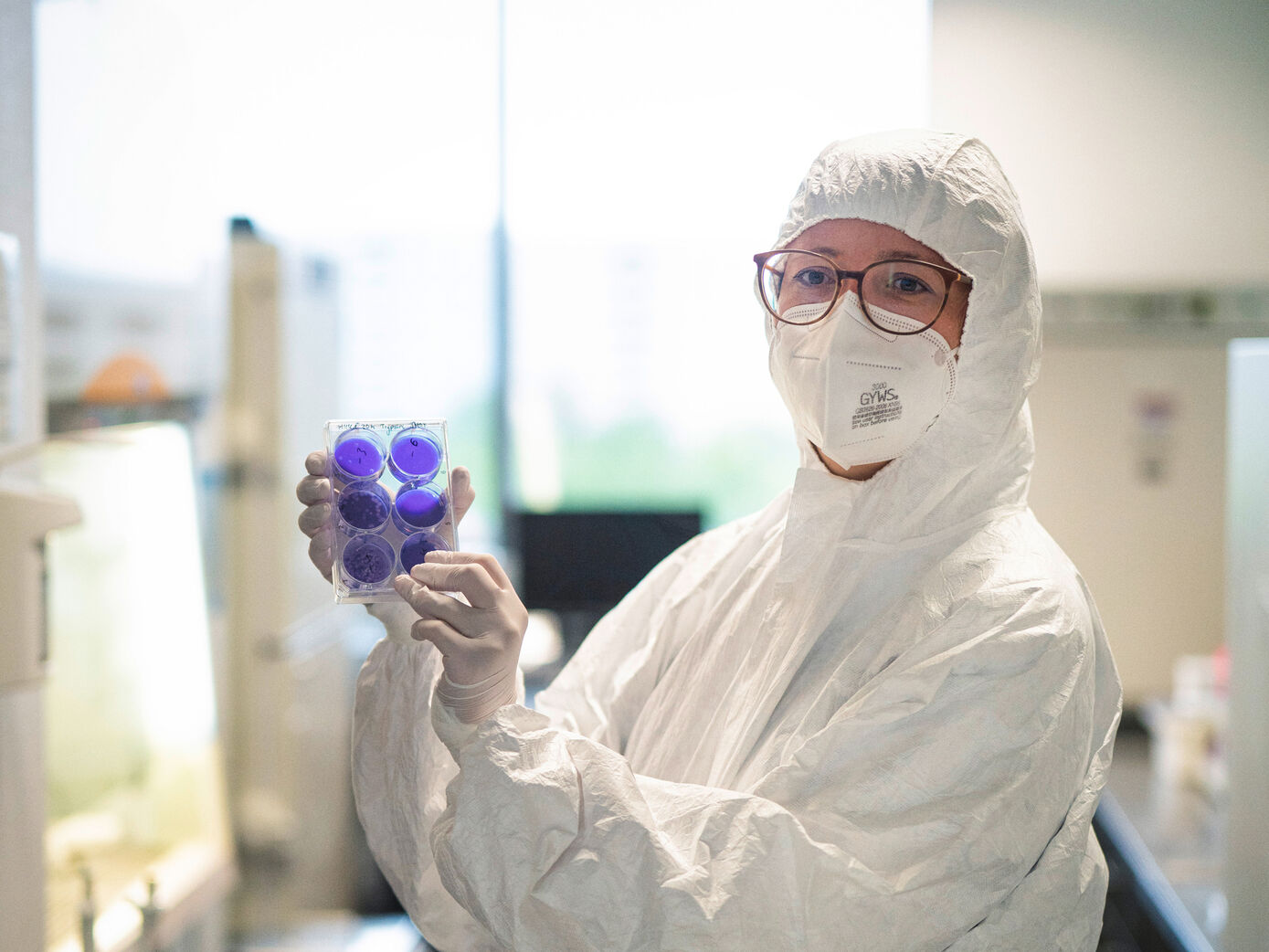
Jena (vdG/UKJ). Ihre schnelle Veränderlichkeit und die leichte Übertragung, zumal in unserer globalisierten Welt, machen sie so tückisch: Viren, die die Atemwege infizieren. Allein in den letzten zwanzig Jahren haben Influenzavarianten als Schweine- und Vogelgrippe Tausende Tote gefordert. Coronaviren haben mit SARS, MERS und COVID-19 drei neue Krankheitsbilder hervorgebracht, letztere mit beispiellosen Auswirkungen auf das tägliche Leben und die Weltwirtschaft. Im Forschungsverbund „SARSCoV2Dx“ wollen das Universitätsklinikum Jena, die Jenaer Leibniz-Institute für Naturstoff-Forschung und Infektionsbiologie (Leibniz-HKI) sowie für Photonische Technologien (Leibniz-IPHT) und die Friedrich-Schiller-Universität Jena anhand der COVID-19 Erkrankung Methoden und Technologien entwickeln, die virale Ausbrüche frühzeitiger erkennen und deren Eindämmung unterstützen können.
„Wir werden im Bereich der Virusdiagnostik arbeiten, die Reaktion des infizierten Körpers auf die Erreger weiter erforschen und nach neuen Wirkstoffen und Ansätzen für die Therapie von COVID-19 suchen“, fasst Dr. Stefanie Deinhardt-Emmer das Forschungsprogramm zusammen. Die Ärztin koordiniert das Verbundprojekt und arbeitet am Institut für Medizinische Mikrobiologie des UKJ, das vor allem an der Entwicklung einer standardisierten Probenvorbereitung, einer robusten molekularen und biochemischen Analytik für Viruspartikel und der Etablierung biologischer Modellsysteme für Virusinfektionen beteiligt ist.
Diese Testsysteme dienen auch der Entwicklung neuer diagnostischer Methoden auf der Basis spektroskopischer Verfahren. Stefanie Deinhardt-Emmer: „Dabei wollen wir nicht bei der Zellkultur oder dem Machbarkeitsnachweis stehen bleiben, sondern neue Methoden gegen die aktuellen diagnostischen Standards testen und in der klinischen Routine etablieren.“ Mittelfristig sollen die neuen Verfahren nicht nur die viralen Erreger schneller erkennen können, sondern auch Patientenmerkmale, die Aufschluss über den Krankheitsverlauf geben. Nach solchen Merkmalen suchen die Forschungsteams bei der Analyse der Immunantwort auf die Virusinfektion, und nach neuen Ansätzen für zielgerichtete antivirale Wirkstoffe und Therapien. Neben einem umfangreichen Datenmanagementprojekt umfasst das Forschungsprogramm des Verbundes auch den Bereich Public Health und Pandemiemanagement, der sich mit der gesellschaftlichen Dimension der Epidemie beschäftigt, von der Prävention bis zu den Eindämmungsmaßnahmen und den sozialen Folgen.
Die Erkenntnisse, Methoden und Technologien, die der Forschungsverbund „SARSCoV2Dx“ hervorbringt, sollen zunächst die Infektions- und Krankheitsmechanismen von COVID-19 weiter entschlüsseln, SARS-CoV-2 schneller in Patientenproben detektieren und neue Therapieansätze gegen COVID-19 aufzeigen. Das Verbundteam wird die etablierten Technologien in das sich im Aufbau befindliche Leibniz-Zentrum für Photonik in der Infektionsforschung (LPI) einbringen, um sie weiter nutzen und adaptieren zu können und so zur besseren Vorbereitung auf künftige Pandemien beitragen.
Prof. Dr. Thomas Kamradt, Wissenschaftlicher Vorstand des UKJ, betont: „In den Verbund fließen die jahrelangen Erfahrungen im Jenaer Netzwerk der Sepsis- und Infektionsforschung ein und unsere aktuellen Erfahrungen während der Pandemie. So werden wir zur Bewältigung der COVID-19-Pandemie und künftiger Epidemien beitragen.“ Das Bundesministerium für Bildung und Forschung BMBF fördert das auf fünf Jahre angelegte Verbundprojekt im Rahmen seines Programms „Photonik Forschung Deutschland“ mit insgesamt zwölf Millionen Euro.
Kontakt:
Dr. Stefanie Deinhardt-Emmer
Institut für Medizinische Mikrobiologie, Universitätsklinikum Jena
Telefon: +49 3641 9-393640
AG Rödel

Projects
Development and evaluation of rapid molecular diagnostic assays
The focus of our research is the conception and evaluation of molecular assays based on loop-mediated isothermal amplification (LAMP) for the use as rapid diagnostic tests in routine laboratories. LAMP offers the potential to test sample without nucleic acid extraction in a very short turnaround time of ≤ 30 min.
Projects:
- Rapid blood culture testing for identification of bacterial and fungal species and resistance marker genes
- Identification of beta-lactamase genes in Enterobacterales isolates (ESBL, AmpC, and carbapenemases)
- Differentiation of virulence factors of intestinal pathogenic E. coli, e. g. EHEC, in stool samples and culture isolates
- Rapid Salmonella typing
- Culture-independent diagnostics of deep tissue infections and endocarditis
- Rapid diagnostic tests for respiratory viruses (Influenza virus, SARS-CoV-2)
Industrial partner for scientific cooperation: Amplex Diagnostics GmbH (Gars-Bahnhof, Germany)

Automation in microbiology
We work on the development of automatized workflows in culture-dependent microbiological diagnostics and the integration of automated PCR systems. Automated culture microbiology and PCR in the bacteriology laboratory was implemented by installation of the BD Kiestra Work Cell Automation (WCA) and BD MAX PCR systems. The aims of this work are:
- To decrease the time of diagnostic reports including results of antimicrobial susceptibility testing
- To increase the sensitivity and quality of culture microbiology by high-resolution streaking of cultures and improved conditions of culture incubation
- To improve the surveillance of multi-resistant pathogens
Industrial partner for scientific cooperation: Becton Dickinson GmbH (Heidelberg, Germany)

CV
Professional activities
| 2017 | apl. Professor (extraordinary Professor) of Medical Microbiology |
| 2016 | Medizinischer Fachmikrobiologe (DGHM/BÄMI, specialist in medical microbiology and infectious disease epidemiology) |
since 2012 |
Head of the laboratory for bacteriological and mycological diagnostics |
| 2010 | Akademischer Oberrat |
| 2007 | Habilitation (post doc thesis), Jena University Hospital, Friedrich Schiller University of Jena, Topic: Modulation of the host cell response by Chlamydia infection |
| 1997–2007 | Post doc, Institute of Medical Microbiology, Jena University Hospital |
Education
| 1993–1997 | Dr. rer. nat (PhD) in Microbiology, Friedrich Schiller University of Jena |
| 1988–1993 | Diploma in Biology with emphasis on Microbiology, Zoology, and Biochemistry, Friedrich Schiller University of Jena |
Teaching activities
Lectures and practical training in Medical Microbiology for students of:
- M.Sc. Molecular Medicine
- Human medicine
- Dental medicine
- M.Sc. Chemical Biology
- B.Sc. Nutritional Science
- B.Sc. Biochemistry and Molecular Biology
Publications
Pubmed: Rödel J Jena
